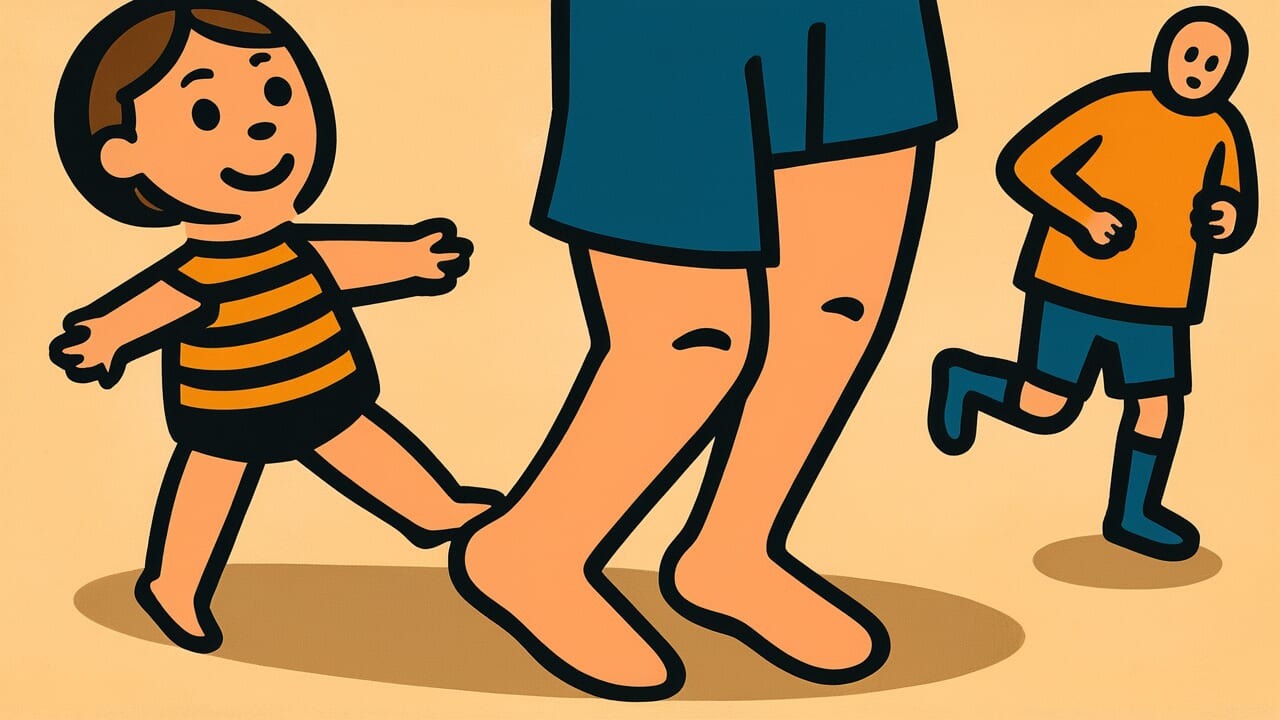How to Read “Children are treasures, but they make your shins thinner”
Kodakara sune ga hosoru
Meaning of “Children are treasures, but they make your shins thinner”
“Children are treasures, but they make your shins thinner” means that having many children costs a lot to raise them, making family finances difficult.
Children are precious like treasures. But raising them requires a lot of money, and the financial burden on parents becomes heavy.
Food, clothing, and education costs all increase as the number of children grows. Parents must cut back on their own living expenses.
The expression “shins become thinner” symbolically represents how parents themselves become worn down by economic hardship. This proverb honestly expresses the two sides parents face: the joy of raising children and economic reality.
Even today, rising education costs and living expenses make the financial burden on families with many children a major social problem. The situation this proverb describes is still felt by many households.
Origin and Etymology
No clear written records remain about the origin of this proverb. However, we can make interesting observations from how the words are structured.
The word “kodakara” (child treasure) compares having children to possessing wealth or treasure. In Japan since ancient times, having descendants was directly connected to family survival and prosperity. Children were considered the most precious existence.
Meanwhile, “shins become thinner” expresses becoming so impoverished that your legs waste away. Shins are an important part that supports the body. When they become thin, it means economic difficulties severe enough to shake the foundation of life.
This proverb likely emerged from the living conditions of common people during the Edo to Meiji periods. Medical care and social security systems were undeveloped then. Everything depended on parents’ economic power to raise children.
The more children they had, the more food and clothing costs piled up. Parents had to feed their children even if it meant cutting their own meals.
By combining the contrasting words “treasure” and “thinner,” the proverb brilliantly expresses the complex emotions parents face: love for children and economic reality.
Usage Examples
- I’m happy our third child was born, but this is exactly what “Children are treasures, but they make your shins thinner” means
- As the saying “Children are treasures, but they make your shins thinner” goes, thinking about education costs makes me hesitate about having a second child
Universal Wisdom
The proverb “Children are treasures, but they make your shins thinner” captures a universal conflict. It shows how humans struggle between love and reality.
Love for children is one of the strongest instincts common to all humanity. No matter how poor, parents can sacrifice themselves for their children’s smiles.
But at the same time, humans cannot escape material constraints. The harsh reality that love alone cannot raise children always stands before parents.
This proverb has been passed down for so long because it honestly acknowledges this contradiction. It doesn’t offer idealism or pretty words. Instead, it frankly expresses the difficulties parents actually face.
It calls children treasures while also acknowledging the economic burden. This honesty has resonated with many people.
Humans possess both emotion and reason. Loving feelings and economic calculations are both undeniable realities. This proverb teaches us the importance of accepting human complexity.
You don’t need to be a perfect parent. Feeling economic anxiety is not shameful. That’s what it tells us.
When AI Hears This
The human brain discounts value over time not linearly but in curves. For example, people choose 10,000 yen today over 11,000 yen in one year.
But they choose 11,000 yen in 11 years over 10,000 yen in 10 years. This contradictory judgment is called “hyperbolic discounting.”
The economic structure of child-rearing falls right into this trap. Immediate expenses like diapers, tutoring, and school uniforms feel many times larger than their actual cost in the brain.
Meanwhile, the value of children supporting parents 20 years later or the happiness of spending time with grandchildren is too distant. The brain processes it as nearly zero yen. That’s why only the feeling of “shins becoming thinner” remains so intense.
What’s interesting is that people in the past kept having children despite this cognitive bias. That’s because the future benefit of “insurance for old age” was concrete, not abstract, back then.
Children helping with farm work and the cultural obligation to care for parents weakened the hyperbolic discounting effect.
Modern declining birth rates stem from exactly this loss of concreteness. Pension systems and nursing care services create the illusion that “old age will be fine without children.” Distant future benefits became even harder to see.
The human brain’s calculation method hasn’t changed. But because social systems changed, the same cognitive bias now produces opposite behaviors.
Lessons for Today
This proverb teaches us the importance of facing reality when making important life choices.
Having children is a wonderful experience. But it also requires economic preparation. Acknowledging that realistic problems exist that love alone cannot solve is not a lack of affection. Rather, it’s the attitude of a responsible parent.
For those of us living today, this proverb suggests the importance of planning. Making financial projections before having children, utilizing social support systems, and talking frankly with partners.
These preparations lead to creating a better environment for both children and parents.
Above all, this proverb also contains the message “you don’t have to be perfect.” You’re not alone in feeling economic anxiety while raising children.
Many parents carry the same worries yet still cherish their days with their children. Acknowledging difficulties while moving forward—that courage is true strength.



Comments